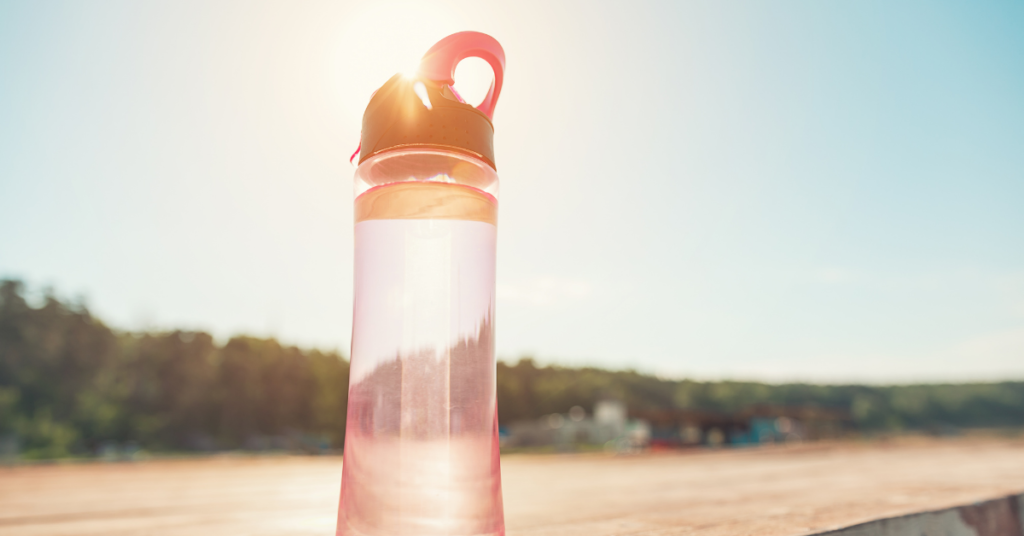Originally we all come from the sea, little organisms floating around. Nowadays water makes up 50-60% of our bodies overall weight. This means if you weigh 100kgs you’re roughly 50-60kgs of water. How much water is stored in the body is determined by each individual’s body composition, menstrual cycle, pregnancy and diet.
We get water through our skin from the air around us, we can get up to 1L each day from our diet, and from the water we drink. The amount of water each person needs is affected by their lifestyle, the climate they live in, how physically active they are and whether or not they are healthy or sick. Normal people, who aren’t exercising, 2L + a whole food diet will be sufficient.
Our bodies are great at regulating water intake through thirst. Being as little as 1-2% dehydrated can cause headaches, fatigue, lack of focus, decreased performance, dizziness and heart rate fluctuations.

How Food Impacts Water Storage
Our bodies like balance. When we eat a diet high in sodium/salt it increases our sodium levels in our blood. The higher the sodium levels the more our bodies need water to dilute it. Leading us to be thirsty. However, higher sodium in our blood stream means we will also retain water. As a result, if you eat a big salty meal, the next morning you might weight more due to water retention.
For physique, body weight classed athletes, and models, eating a diet low in sodium before an important event could be a good idea to reduce excess water without stressing your body. Remembering dehydration leads to decreased performance and focus.
Carbohydrates also impact our water storage. For every gram of Carbohydrates we eat, we store 4 grams of water. Eating a high carbohydrate diet tells our bodies to store more water, compared to eating a low carbohydrate diet.
Eating a high protein diet will lead to less water storage, because water is used during breakdown and digestion. Storing water in our bodies is a normal and necessary part of life. For most people eating a balanced diet rich in a variety of whole foods will lead to fat loss and muscle gain without causing harm through dehydration.
Water for performance athletes
Electrolytes are responsible for every process in our bodies. they help information travel between, in and out of our cells. During endurance sports, and regular exercise we lose electrolytes and water through sweat.
During endurance events or after workouts choosing electrolyte gels and powders < 10% diluted in water to replenish lost stores. For athletes who want to gain muscle consume water mixed with protein and/ or carbohydrates post workout to reduce the strain on our body and have a positive impact on recovery.
Our Tips
- Drink 0.5-1L during physical activity, 0.5-1L after working out and 250ml with each meal.
- Keep a jug or water bottle at your desk or work area. Refill regularly.
- Eat a diet high in vegetables, mixed protein, fruit and starchy carbohydrates.
- Aim to drink 2-3 L of water per day.
- Always consider how often you workout, the climate you live in, your goals and health needs.
If you would like a more specific strategy tailored to your nutritional needs, contact us by booking your FREE nutrition help call below and speak with one of our coaches.
